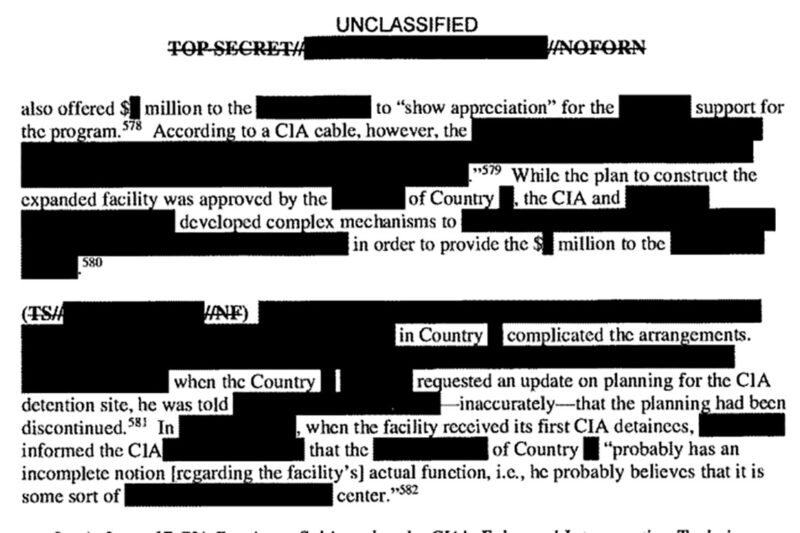The Public’s Need for the Full Story of CIA Torture Has Gotten Even More Urgent


Update (3/16/2016): Shortly after this post was published on Tuesday afternoon, we received word that Judge David Tatel will replace Chief Judge Garland on the bench for tomorrow’s argument.
Given the recent and re-manufactured debate over torture’s legality, morality, and “effectiveness,” our nation is presented with a stark choice: Do we learn from one of the darkest chapters in our history, or do we repeat our most grievous and heinous mistakes?
With our core values hanging in the balance, now — perhaps more than ever — it is imperative that the Senate torture report see the light of day.
The U.S. Court of Appeals for the D.C. Circuit will hear oral argument tomorrow in ACLU v. CIA, our Freedom of Information Act lawsuit seeking the release of the 6,900-page report about the CIA’s former program of detention, torture, and other abuse of detainees. (Chief Judge Merrick Garland, President Obama’s nominee to the Supreme Court, is scheduled to hear the argument along with Judges Sri Srinivasan and Harry Edwards.) For more than two years, the ACLU has sought the release of this definitive account of the CIA’s abuses and deceptions. However, given the visibility of the issue in recent weeks, our fight for the public’s right to know has taken on a new urgency.
This landmark report, authored by the Senate Select Committee on Intelligence, is the most comprehensive study of the torture program to date. It took more than five years to complete and is based on the review of millions of pages of agency records. As we know from a publicly available summary, the full report describes, in exhaustive detail, widespread and horrific human rights abuses by the CIA. It documents a litany of CIA lies to Congress, the White House, the courts, and the American public — including myriad agency misrepresentations about the “effectiveness” of torture — which contributed to a dramatic failure of democratic oversight.
Despite the importance of this report to the historical record and continuing public debate, the CIA and other agencies are fighting to keep it under wraps. In our suit, the government argues that the torture report is controlled by Congress and thus isn’t subject to FOIA. (The law applies only to “agency records,” not congressional ones.) But under well-established law, there’s no question that the report is an agency record: Congress sent the document to several agencies and did not assert any intent to control it.
In December 2014, when the SSCI sent the full report to the CIA, the Department of Justice, the Department of State, and the Department of Defense, then-SSCI Chair Dianne Feinstein (D-Calif.) asked that the report be made available “broadly” within the executive branch to help make sure that the CIA’s detention and torture program is “never repeated.” Indeed, as former Sen. John Rockefeller (D-W.Va.) further explained in an amicus brief in support of our case, the SSCI placed no limits on the agencies’ use of the report and plainly intended to relinquish its control of the document.
As a matter of law, whether the report is subject to FOIA depends on the SSCI’s intent when it sent the document to the agencies in 2014, and not on what happened afterward. Nevertheless, in early 2015, after Sen. Richard Burr (R-N.C.) took over as chair of the Senate Intelligence Committee, he wrote to President Obama with the unprecedented request that the agencies transfer their copies of the torture report back to the Senate, which could have deprived the courts of the ability to decide if the document should be released to the public or not. After the ACLU filed an emergency motion to stop the transfer of the report, the government agencies told the court that they’d honor the “status quo” — committing to hold on to the report while our lawsuit is pending.
Release of the torture report would not only advance the values of transparency and accountability, but it would help to settle a contrived and debased debate about the need to torture. We still haven’t accounted for the deep harm torture does to its victims and our country, and we can’t afford to regress even further by burying evidence of our past. Without a proper reckoning, history may very well repeat itself.


